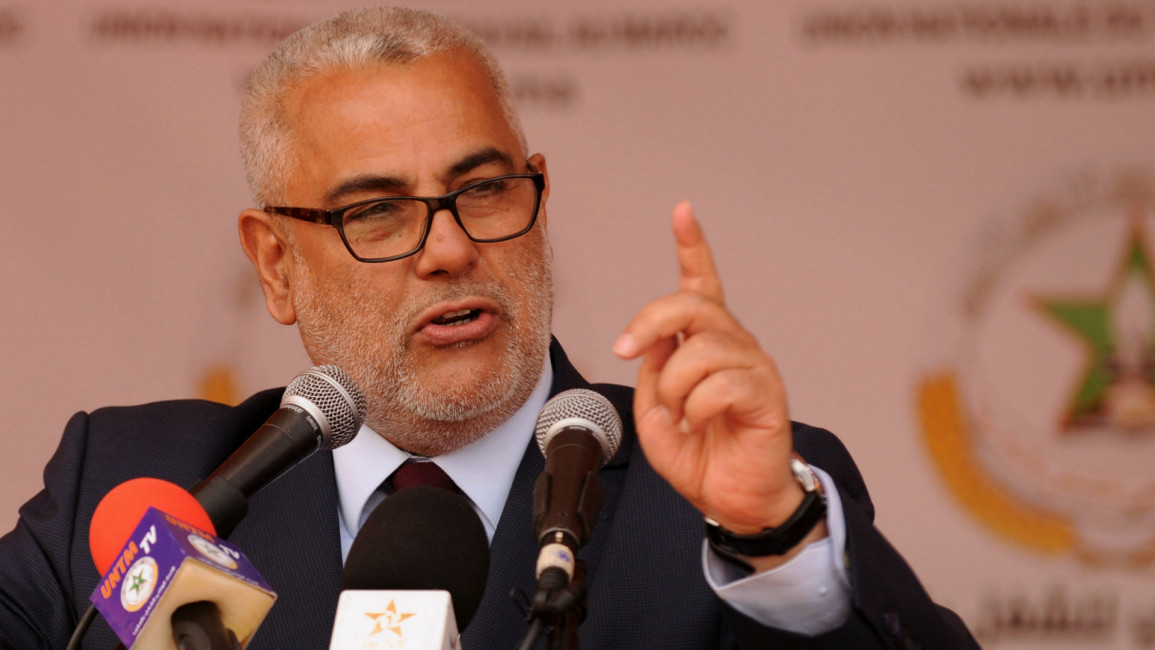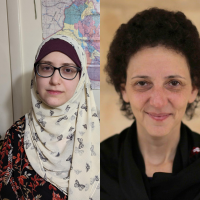
Morocco's PM: the pop star politician
For four years he has been larger than life in Morocco.
The name and picture of Prime Minister Abdelilah Benkirane frequents the front pages of Morocco's daily and weekly newspapers. Videos of him are more widely shared by Moroccans on social media than those of celebrities.
His monthly appearances in parliament are major political events that reinvigorate political life or, at least, renew attention in an institution many Moroccans are otherwise averse to. His debates, expressions, statements, and quips often become hashtags trending across social media sites.
He is an eloquent speaker, uses direct language and is not afraid to call a spade a spade. He surprises his interlocutors by speaking on issues they do not expect him to address, while staying silent about other issues people expect him to tackle.
Benkirane's opponents view him as a political clown who is fluent in populist language meant to win the sympathy of the less educated class. For them, his style hurts real political debate.
| Let history judge Benkirane, because this is the only judgment that will matter in the end. |
His supporters see him as a seasoned statesman, cleverly playing the political game. They believe he is wise and uses a plain language everyone understands.
Some believe Benkirane's approach and conduct have caused the prime-ministership to lose its prestige and moral authority. They argue the prime minister has become little more than a well-versed actor, whose appearance is eagerly anticipated on television.
Observers consider Benkirane to be a "political animal", who is pragmatic and knows how to maneuver himself. He offers concessions and is able to bend with the storm until it passes. He also knows when to throw down the gauntlet and engage in one-upmanship with his opponents, with limits that he alone knows and sets.
Benkirane's has made many gaffes, yet he knows how to play them to his advantage. He is always willing to admit to his blunders and fix them, and apologise to the public. Benkirane has no qualms about descending from the pulpit to kiss the head of an ordinary citizen.
It is difficult to identify his enemies and allies. At the start of protests in 2011 he launched a scathing attack on two of King Mohammed VI's closest aides. Yet when he became prime minister, he quickly sang their praises.
Benkirane once described the chairman of one political party in the most caustic of terms, accusing him of failure and corruption, but soon after he become an ally on which he lavished praised. Meanwhile, he was quick to describe former allies once labelled loyal and dedicated as corrupt, tyranical, thieves or bandits.
Benkirane draws strength from his sharp tongue, which at the same time sums up all his weaknesses. However, no one can question his integrity.
He could be described using the term coined by Saudi commentator Abdullah al-Gosaimi, who called the Arabs a "noise phenomenon". Only history will judge is he is, as it judged previous prime ministers, including Abderrahman el-Youssoufi, once called the Moroccan Sphynx because he liked silence.
Between the "wisdom" of the first post-independence prime minister Abdullah Ibrahim, the "silence" of Youssoufi - the first prime minister from the left-wing opposition, and the "talkativeness" of Benkirane - the Islamist prime minister, history barely mentions any other prime ministers in Morocco.
Let history judge Benkirane, because this is the only judgment that will matter in the end.
This article is an edited translation from our Arabic edition.




